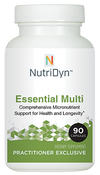A study finds that people today who eat and exercise the same amount as people 20 years ago are still fatter. It’s well known that some types of gut bacteria make a person more prone to weight gain and obesity.
Was It Was Easier to Be Skinny in the 1980’s?
- News
- 29 Nov, 2019
https://getpocket.com/explore/item/why-it-was-easier-to-be-skinny-in-the-1980s
Why It Was Easier to Be Skinny in the 1980s ![]()
It’s well known that some types of gut bacteria make a person more prone to weight gain and obesity.
A study finds that people today who eat and exercise the same amount as people 20 years ago are still fatter.
This Article assess why it was easier to control your weight prior to 1980:
- The authors examined the dietary data of 36,400 Americans
- Study Included the period between 1971 and 2008
- Physical activity data of 14,419 people between 1988 and 2006.
- They were grouped the data sets together by the amount of food and activity, age, and BMI.
- They found a very surprising correlation:
- A given person, in 2006, eating the same amount of calories,
- Taking in the same quantities of macronutrients like protein and fat,
- Exercising the same amount as a person of the same age did in 1988
- would have a BMI that was about 2.3 points higher.
- People today are about 10 percent heavier than people were in the 1980s,
- even if they follow the exact same diet and exercise plans.
- It’s well known that some types of gut bacteria make a person more prone to weight gain and obesity
There’s a meme aimed at Millennial catharsis called “Old Economy Steve.” It’s a series of pictures of a late-70s teenager, who presumably is now a middle-aged man, that mocks some of the messages Millennials say they hear from older generations—and shows why they’re deeply janky. Old Economy Steve graduates and gets a job right away. Old Economy Steve “worked his way through college” because tuition was $400. And so forth.
Quickmeme
We can now add another one to that list: Old Economy Steve ate at McDonald’s almost every day, and he still somehow had a 32-inch waist.
MemeGenerator.net
A 2016 study published in the journal Obesity Research & Clinical Practice found that it’s harder for adults today to maintain the same weight as those 20 to 30 years ago did, even at the same levels of food intake and exercise.
Photo by Reed Saxon / AP
The authors examined the dietary data of 36,400 Americans between 1971 and 2008 and the physical activity data of 14,419 people between 1988 and 2006. They grouped the data sets together by the amount of food and activity, age, and BMI.
They found a very surprising correlation: A given person, in 2006, eating the same amount of calories, taking in the same quantities of macronutrients like protein and fat, and exercising the same amount as a person of the same age did in 1988 would have a BMI that was about 2.3 points higher. In other words, people today are about 10 percent heavier than people were in the 1980s, even if they follow the exact same diet and exercise plans.
“Our study results suggest that if you are 25, you’d have to eat even less and exercise more than those older, to prevent gaining weight,” Jennifer Kuk, a professor of kinesiology and health science at Toronto’s York University, said in a statement. “However, it also indicates there may be other specific changes contributing to the rise in obesity beyond just diet and exercise.”
Just what those other changes might be, though, are still a matter of hypothesis. In an interview, Kuk proffered three different factors that might be making harder for adults today to stay thin.
First, people are exposed to more chemicals that might be weight-gain inducing. Pesticides, flame retardants, and the substances in food packaging might all be altering our hormonal processes and tweaking the way our bodies put on and maintain weight.
Second, the use of prescription drugs has risen dramatically since the ‘70s and ‘80s. Prozac, the first blockbuster SSRI, came out in 1988. Antidepressants are now one of the most commonly prescribed drugs in the U.S., and many of them have been linked to weight gain.
Finally, Kuk and the other study authors think that the microbiomes of Americans might have somehow changed between the 1980s and now. It’s well known that some types of gut bacteria make a person more prone to weight gain and obesity. Americans are eating more meat than they were a few decades ago, and many animal products are treated with hormones and antibiotics in order to promote growth. All that meat might be changing gut bacteria in ways that are subtle, at first, but add up over time. Kuk believes the proliferation of artificial sweeteners could also be playing a role.
The fact that the body weights of Americans today are influenced by factors beyond their control is a sign, Kuk says, that society should be kinder to people of all body types.
“There's a huge weight bias against people with obesity,” she said. “They're judged as lazy and self-indulgent. That's really not the case. If our research is correct, you need to eat even less and exercise even more” just to be same weight as your parents were at your age.
The exercise part is perhaps one area where Old Economy Steve doesn’t have an edge. A membership at one of the newfangled fitness centers of 1987 would go for about $2,800 per year in today’s dollars, and that’s still what it costs today.
Olga Khazan is a staff writer at The Atlantic.
From The Atlantic
This article was originally published on September 30, 2015, by The Atlantic, and is republished here with permission. https://getpocket.com/explore/item/why-it-was-easier-to-be-skinny-in-the-1980s
This website is dedicated to providing the highest quality information. To ensure that, each section is reviewed by physician(s) and, in certain cases, other experts with expertise in the area presented.
However, it is not possible to assure that this website contains complete, up-to-date information on any particular subject. Therefore, DrDirect4u and its representatives make no representations or warranties about the suitability of this information for use for any particular purpose. All information is provided "as is" without express or implied warranty.
No medical advice or referrals: The information posted here at DrDirect4u should not be considered medical advice and is not intended to replace consultation with a qualified health care practitioner. DrDirect4u will not answer specific medical questions or refer people to a particular health care professional.
No literature or Web searches: DrDirect4u does not conduct searches of the medical literature or of information contained on the World Wide Web for persons accessing this site and requesting such searches.
Note About Links: For the convenience of our users, DrDirect4u provides links to relevant websites. DrDirect4u and its representatives are not responsible for the content contained on the Web pages found at these links.
Copyright © Dr-Direct 2 U LLC













